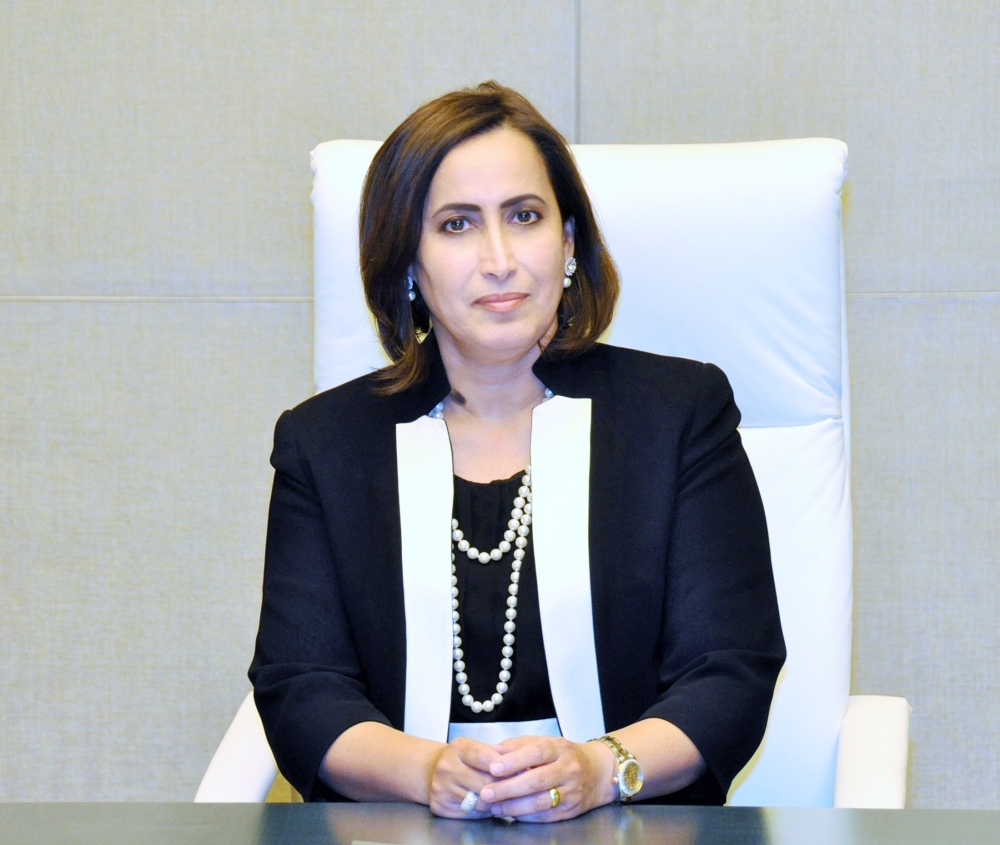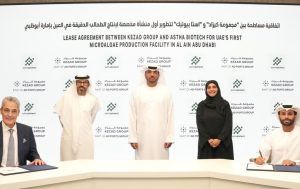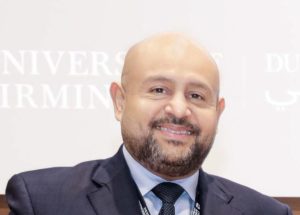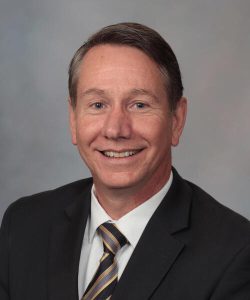“As healthcare providers, we understand the importance of regulating the health sector. People place their trust in us to ensure that the facilities they seek for healthcare are accountable, supervised, and meet the highest standards of quality. That is why regulating the health sector is of utmost importance.” Dr. Mariam Al Jalahma.
By Mohammed Irshad
Have you ever wondered who regulates the healthcare sector and ensures that the quality of care provided to patients is up to par? In Bahrain, it’s the National Health Regulatory Authority (NHRA), and we had the privilege of sitting down with the CEO of NHRA, Dr. Mariam Al Jalahma, to learn more about her role and the importance of regulating the healthcare industry. From discussing her journey to becoming the first female CEO of NHRA to her vision for the future of healthcare in Bahrain, Dr. Al Jalahma provides insightful and thought-provoking answers to our questions. So, let’s dive into the interview and gain a deeper understanding of the vital role NHRA plays in ensuring the health and safety of Bahrain’s citizens.
What motivated you to pursue a career in healthcare regulation, and how did you get started in this field?
I was fortunate to have grown up in a supportive environment that encouraged education and work for women. In Bahrain, women were given equal opportunities to pursue education and careers even before the discovery of oil. With the support of my country’s leaders, I studied medicine in Egypt through a government scholarship. After graduation, I chose to specialize in Family Medicine as I believe in a comprehensive approach to healthcare that takes into account a person’s physical, psychological, and social well-being, which is in line with the World Health Organization’s definition of health.
Throughout my career, I worked as a family physician, a trainer, and a tutor at university and the Ministry of Health. Later, I was honored to be appointed by His Majesty the Kingas the Assistant Undersecretary for Primary Care and Public Health, where I served for over ten years. When the government established the National Health Regulatory Authority, I was entrusted with the responsibility of leading this independent regulatory body.
My entire career has revolved around health, and I even had the honor of being appointed as a member of the Shura Council, one of the first four women in Bahrain to achieve this milestone. Overall, my passion for promoting and regulating healthcare in Bahrain stems from the supportive environment I grew up in and the opportunities provided by my country’s leadership.
What lessons have you learned about healthcare management and regulation from your previous roles, and how are you applying them as CEO of NHRA?
As a physician and former Assistant Undersecretary for Primary Care and Public Health, I learned that healthcare is a complex system with various stakeholders. As CEO of the National Health Regularity Authority, I’m developing policies and standards that strike a balance between quality care and safety. Establishing national accreditation programs and implementing rigorous standards are top priorities to improve overall healthcare quality and public trust. I am proud to say that our efforts have beenrecognized by ISQua International Society for Quality and Health Care, and we remain committed to enforcing high standards.
How has healthcare regulation in Bahrain changed over time, what were the challenges NHRA faced?
The National Health Care Authority (NHRA) was established in 2009 to regulate healthcare in the Kingdom of Bahrain. Before that, a small office within the Ministry of Health managed regulations. HRH the Crown Prince and Prime Minister recognized the need for an independent regulatory health body, in line with Bahrain’s Economic Vision 2030. This led to the formation of the NHRA. Bahrain’s unique regulatory system centralizes all healthcare regulations under one authority. NHRA is responsible for licensing, inspecting, and accrediting healthcare facilities, as well as licensing healthcare professionals. The Authority also approves pharmaceuticals, medical devices, clinical trials, and continuous professional development programs. Additionally, it investigates medical errors and take disciplinary action accordingly. Unlike other countries, where different authorities manage licensing of professionals, hospitals, and medicines, everything related to healthcare in Bahrain falls under NHRA’s jurisdiction.
Bahrain’s regulatory system for healthcare facilities and investors is centralized, making it convenient to deal with one interconnected authority, the NHRA. NHRA uses online systems like “Munshaat” and “MEHAN” to match professionals’ qualifications with the facility’s scope of services. NHRA also regulates the import of medical devices and pharmaceuticals. Since the 70s, Bahrain has had a well-established law for regulating pharmaceuticals, and in 2016, the NHRA began regulating medical devices. The challenge was to ensure that medical devices meet quality standards as physicians used to purchase them without proper regulation. We developed a regulatory system to ensure the proper production, maintenance, and quality of medical devices.
In the future, NHRA will continue to strive towards achieving the highest standards of healthcare regulation in Bahrain. We are constantly looking for ways to improve our regulatory systems to ensure the safety and quality of healthcare services provided to the community.
How does the NHRA collaborate with other regional and international regulatory bodies,to ensure global harmonization of regulations and standards?
The NHRA works closely with other regulatory bodies at the regional and international levels to ensure global harmonization of regulations and standards. The NHRA prioritizes harmonization with the GCC.The Authority has central committees for the registration of medicines, medical devices, and food supplements, which helps us to unify our regulations and standards within the GCC. In fact, we even have a central purchasing mechanism for medications and medical devices. While there are some differences in our regulations, we have discovered that being flexible is necessary to ensure the availability of medicine, particularly in emergency situations. We follow all WHO regulations and those of other important regulatory bodies, such as the FDA and EMA. If a medicine is registered elsewhere and not available in our country, we allow it to be imported temporarily until it is registered with the NHRA. Our ultimate goal is to ensure the safety and quality of healthcare products for the people of Bahrain, while collaborating with our regional and international partners to achieve global harmonization of regulations and standards.
How does the NHRA ensure that pharmaceutical companies comply with ethical and legal standards, particularly regarding drug pricing and advertising?
NHRA is a strong advocate of regulatory compliance, particularly when it comes to ensuring ethical and legal standards are met regarding drug pricing and advertising in the pharmaceutical industry. With a well-established pharmacy law in place, We strictly monitor the importation of medication through a pharmaceutical agent, which must provide six internationally recognized modules including full information, leaflets, clinical studies, stability studies, and quality studies. This guarantees that all medications used in Bahrain are safe and produced in compliance with the highest standards. NHRA’s pharmacy law also strictly prohibits medication advertising unless it has been approved by the authority to ensure that all claims made about a medication are accurate and within the mode of action of the medicine. NHRA regulates medication pricing through its law, which stipulates a 25-35% profit margin to be added for the pharmaceutical agent on top of the CIF price, which covers Cost, Insurance, and Freight. This system guarantees regulated and consistent pricing of medication across GCC countries. In addition, NHRA works tirelessly to prevent the falsified medication from entering the country by accrediting the manufacturer’s site with the FDA, WHO, and GCC, or accrediting it in-house. Any manufacturer found to be non-compliant with NHRA’s standards is not allowed to import their medication into Bahrain.
How does the NHRA work with other stakeholders in the healthcare sector, such as hospitals, clinics, and medical professionals, to ensure high-quality care for patients?
The NHRA has forged strong partnerships with hospitals, clinics, and medical professionals are integral to providing high-quality care for patients. The Authority prioritizes collaboration by involving them in our decision-making processes and seeking their feedback on the feasibility of our resolutions. The NHRA maintains transparency by publishing all our resolutions, announcements, and circulars on our webpage and hosting regular meetings and roundtables with stakeholders. By working together, the NHRA ensures that our standards of care and accreditation align with international benchmarks. Our dedication to innovation and problem-solving in healthcare shines through our commitment to supporting stakeholders in overcoming the challenges they face. The NHRA is flexible in our approach and willing to work with stakeholders to address any challenges they face. The authority has a good relationship with them, not just through official channels but also through social means.. This enables us to communicate quickly and effectively, which was particularly important during the COVID-19 pandemic.
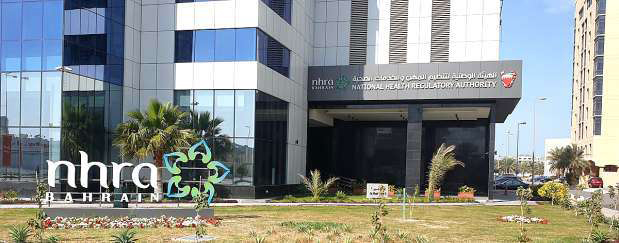
How do you see the healthcare landscape evolving in the Gulf Cooperation Council region over the next 5-10 years, and what role do you see Bahrain playing in that evolution?
The healthcare landscape in the Gulf Cooperation Council (GCC) region is constantly evolving and improving. The NHRA is fortunate to have the GCC executive council for ministers of health, which helps to harmonize decisions across the region. In the next 5-10 years, we anticipate that there will be a greater emphasis on quality standards for providing care, especially as medical tourism continues to grow in the region. The Authority has signed contracts and have good relationships with other stakeholders in the healthcare sector, such as the Central Board for Accreditation in Saudi Arabia (CBAHI), the Saudi authority for healthcare professionals, and the Saudi FDA. NHRA also works closely with the UAE and communicates regularly with other GCC countries through executive board members. We are always striving to harmonize and improve the regulations related to pharmaceuticals and medical devices, and we listen to feedback from stakeholders to make the necessary improvements. The NHRA’s goal is to ensure that patients receive the highest quality of care possible and that the healthcare industry in the GCC continues to grow and thrive.
What advice do you have for foreign healthcare and pharmaceutical companies looking to enter the Bahrain market?
Bahrain welcomes foreign healthcare and pharmaceutical companies to invest in the country. The government offers support and incentives for manufacturers through Tamkeen, the labor market fund authority. Tamkeen can provide up to 40% support for equipment and salaries of Bahraini employees and can assist with IT and marketing plans as well as staff training. The Economic Development Board can also help companies communicate with other entities such as the Ministry of Trade and Municipality.
It is important for companies to have a clear understanding of the regulations and requirements before investing in Bahrain. The NHRA’s website provides detailed information on how to open a facility, import medication, and license medical devices. The website also publishes open data on physicians, facilities, medicines, medical devices, and their prices. The annual report of the healthcare sector provides information on the number of beds, their location, and specialties. This data can help companies identify areas where there is a need for investment. NHRA investment office is open to meeting new investors and supporting them in their projects.
As a successful woman in a leadership role in the healthcare industry, what advice do you have for other women who are interested in pursuing leadership roles in this field?
It is important to recognize that there are no limitations for women in pursuing leadership roles in the healthcare industry. Women can be independent leaders running their facilities and have the qualifications and support necessary to succeed.
The Supreme Council for Women led by Her Royal Highness Princess Sabeeka bint Ibrahim Al Khalifa, the wife of His Majesty the King, offers various programs to support women in the workforce. It is also important to note that today, we are moving beyond the concept of equity and toward the idea of balance. Women who are healthcare workers and mothers are given additional support, such as extended maternity leave and flexible work hours for feeding, to ensure that they are able to balance their personal and professional responsibilities effectively.

